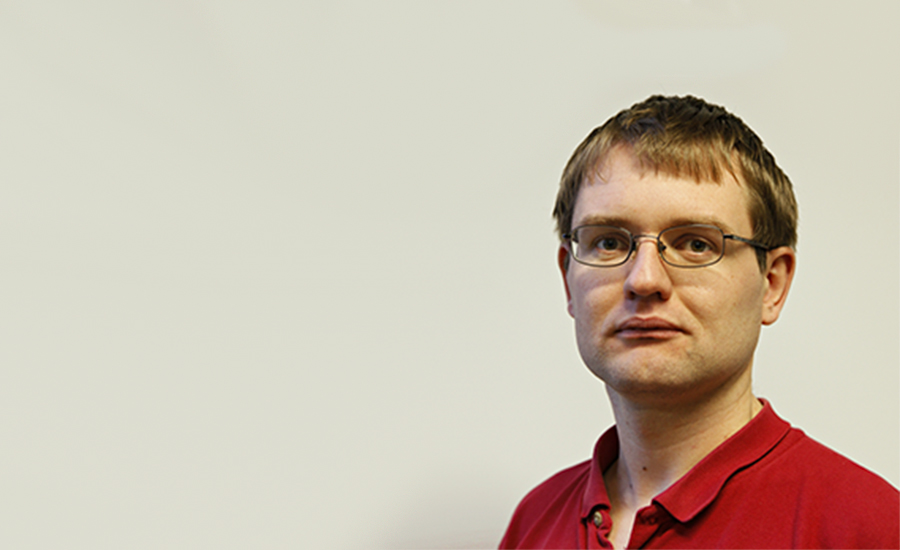What does an academic’s day look like during term time and in the summer? And how do you get from being a student to teaching at university level? Dr David Pugh, MChem in Chemistry at the University of York, told us about his journey and the skills needed to do his job well.
Dr David Pugh
Tell us about your career path to date.
I look after the delivery of practical chemistry teaching in our undergraduate teaching laboratories in the University of York’s Department of Chemistry. This includes both planning what we are going to teach and teaching students in the lab. I actually came to York for my undergraduate degree and have never left! I completed an MChem degree here, before carrying out a Ph.D here under the supervision of Professor Richard Taylor.
What is a typical day like in your job?
In-term and out-of-term days are like two different jobs. When students are here, the days mostly revolve around delivering teaching in the lab. There are lots of organisational aspects to ensure everything runs smoothly and that everyone (students, demonstrators, technicians etc) knows what’s going on, as well as the teaching.
Out of term time, my job is much more around planning for the future, both the logistics of who’s going to come into the lab when, and the actual teaching content. We’re regularly changing parts of the course, and looking for better approaches with the practical teaching to try to ensure we deliver practicals that are effective in the skills they teach, with the right level of complexity.
>> Interested in a career in chemistry publishing? Then see how Bryden Le Bailly, Senior Editor at Nature, went about it.
So, a day out of term time might see me trying to come up with timetables and planning what goes where, or I might be spending time in the lab trying to develop new practicals or refine existing ones.
Which aspects of your job do you enjoy the most?
Teaching students! This is the most enjoyable part of the job – interacting with the students and seeing them slowly develop their practical abilities. It’s especially nice when you see students you’ve taught from when they arrived at university to studying for a PhD and demonstrating in the labs.
What is the most challenging part of your job?
I find developing new practicals for teaching particularly challenging. When you’re a researcher, the outcome of the practical is the key reason for carrying out the lab work: whether it’s to synthesise a new compound or obtain some data to analyse.
With teaching, it’s different. We’re interested in practical processes and whether they are effective at teaching the students.
Teaching labs have many constraints, and practicals need to be designed to take these into consideration. For example, we think about: reaction times, safety of materials, reaction hazards, new skills introduced, practice at existing skills, costs of materials, equipment availability, how many people could carry out the practical, complexity of any analysis, how the labs relate to theory content, and how long it will take students etc.
Developing new practicals that suit the requirements can be really challenging – and you never know exactly how it will turn out until you run it with students for real.
Dr David Pugh (in the blue coat) with Year 3 students.
How do you use the skills you obtained during your degree in your job?
I think the use of the practical skills I learnt will be self-evident in this job, so I’ll focus on some of the other skills. Communication skills are essential, whether using oral skills to explain subjects to students (individually or in groups), giving presentations (e.g. practical briefings), or using written skills (through the lab scripts).
Troubleshooting instruments is a really valuable skill, as the loss of an instrument could really affect students’ progress on a lab day – so being able to quickly fault find and fix is really useful.
And, of course, the skill of being able to learn something you didn’t know how to do is crucial. Chemistry will keep changing, with new areas coming into existence. For example,. programming and computational chemistry are core components in our undergraduate degree programme now, but I had no previous experience in those areas.
Are there any other skills required in the work you do?
Good IT Skills and administrative skills have proved essential. So much of the successful running of the labs comes down to organisation. Being able to manipulate student lists, experiments, marks, attendance data etc is a crucial part of the role – I’d really struggle without effective database and spreadsheet skills that can quickly and efficiently generate the data I need.
Is there any advice you would give to others pursuing a similar career path?
If you do pursue this career path, make sure you network with others doing the same kind of role. Meeting and discussing teaching approaches with those who can really relate is so useful, and makes you really think about how you design and deliver your teaching.
This became even more useful at the onset of the Covid-19 pandemic, when we met regularly to work together to solve the challenges of practical teaching without labs.
>> Would you like to get involved in the SCI Young Chemists’ Panel? Find out more here.
>> Excited about a career in next generation drug development? Read how Rachel Ellis got involved






